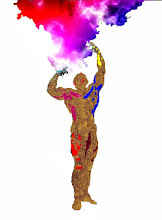A prominent Senator was giving a press conference about a
controversial subject and he started to choke up and cry. Others blamed him for ‘faking’ it. Politicians, especially well known ones must
have raw hide for skin otherwise they wouldn’t have made it this far. As my co worker once said, ‘A politician is someone
who lacks the gene for shame.’ I wondered whether he was genuine, dishonest
and how could one tell.
There
are two kinds of truly genuine emotion.
The first is direct cause and effect emotion. You yell at a child and they cry or someone
loses a loved one and they react with anger, shock, or sadness. The second kind of emotion is one that’s based
off of real events but is spontaneous in nature. It might happen at a random or inopportune
time. It catches people off guard,
especially those who experience it. My
grandfather went through a long physical and mental decline towards the end of
his life. My mother was burdened with making many of the preparations for
him. Eventually he died, we went to two
separate wakes including one with a priest.
Then we headed out to the burial.
He fought in WWII so he was buried at a national cemetery. The two young marines marched in front of the
casket, said a few words, did a salute and carefully folded a flag. It wasn’t until we were leaving, my mother
and I, that the funeral director came up with a comment about the flowers that
didn’t arrive. I was annoyed at his poor
timing but was holding back saying anything out of not wanting to upset my
mother. She then said, ‘I miss him so
much,’ and started crying. It was a
perfectly justifiable reaction but only at the end after everything was
done.
There
are a number of disingenuous emotions, I will attempt to go from somewhat
understandable to completely outrageous.
When someone suspects another of faking a good cry they might say they
put onions in their eyes but it’s more devious than that. People work themselves up to a strong
emotion. A husband comes home late from
work. The wife’s first question is
perfectly reasonable, “Why are you late?”
Before he can even answer or maybe he does answer and she doesn’t listen
comes the following. “You’re always late.” “I’m always alone.” “Then you’re tired and you don’t want to
talk.” “You sleep on the couch.” “I have to eat dinner alone.” “Last night…”
Then come the water works. In
defense, this scenario which plays out very often is probably subconscious. She worked herself up like a train slow at first
and then gaining momentum until she was at full steam. It’s a real problem but the pattern is
predictable and repeatable. Or a man who
is angry about something. He catches another
(smaller) guy looking in his direction. “Are
you looking at something?” “You want to
take a picture?” “Are you checking out
my girl?” “You think she’s hot?” “Huh?”
“What’s Up?” Bam! Fight.
It was totally unnecessary. Even
if these events happen at a subconscious level they can be avoided if the person
was willing to be aware of it.
The
next step down the road is a person who purposely works themselves up. People
don’t fight with logic. Logic is completely
useless in a debate or argument. They use
emotion but the emotion has to have a logical start and climax, like a
movie. I find that women have more tools
in their emotional toolbox. They can be charming, they can be angry, they can
cry, they can pout (aka silent treatment) or they can be elusive. Men can be charming and they can be
angry. Men that cry are usually like
that Senator where no one believes them except in perhaps very limited circumstances.
Actors
also bring on emotion but they use a technique known as channeling. They don’t work themselves up in a situation
with real consequence. They think about
a time in their life when they felt the emotion they want to employ while they
act out another scene. This is why
actors who have some brains make excellent politicians.
Finally,
there are those chosen few that can literally turn the emotion on in a
blink. It’s like they take the train but
instead of a train it’s a rocket that just fires off or they channel in a
flash. They use it like a weapon.
So, how
to tell if someone is faking it? For one
the emotion is convenient. It’s at an
opportune time. Or it’s repeated, again
and again. It’s directed only at one
person in one situation. These are the
calling cards of a faked emotion. The
more calling cards, the more accurate the prediction. You can’t call someone out for it though,
that might bring real anger. The first
thing you have to do is not do the dance.
They get angry, you get angry, then you walk away or make up. Don’t play the game unless you want to.

